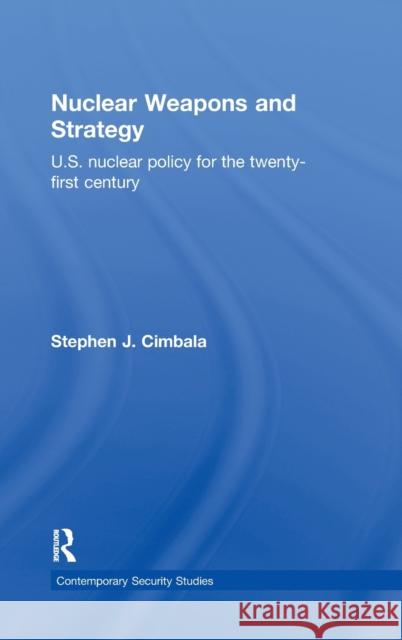Nuclear Weapons and Strategy: Us Nuclear Policy for the Twenty-First Century » książka
Nuclear Weapons and Strategy: Us Nuclear Policy for the Twenty-First Century
ISBN-13: 9780415701990 / Angielski / Twarda / 2005 / 144 str.
Thought to have been marginalized by the end of the Cold War, nuclear weapons have returned to the center of U.S. security concerns. As North Korea have removed the veil of uncertainty by public acknowledgment of its nuclear weapons and Iran is thought to seeks a nuclear weapons capability, fears that rogue states and non-state actors might acquire and use nuclear weapons are a new reality.
This volumes places the latest developments related to nuclear weapons, deterrence, and proliferation within the context of evolving U.S. security policy. After summarizing the most important milestones in the development of U.S. nuclear strategy, it considers present and future security dilemmas related to nuclear weapons such as the complications posed for stable deterrence by the information age, nuclear proliferation and technological innovations. Subsequent chapters offer a complete analysis of contemporary issues such as missile defenses, nuclear proliferation and Israel's nuclear deterrent.
As nonproliferation, missile defenses, or preemptive war strategies cannot guarantee nuclear containment and the potential for a nuclear arms race in Asia among the already nuclear anointed and the nuclear aspiring states, creates the possibility of destabilizing an entire region, the author warns that U.S. and Soviet experience in the Cold War is not necessarily a normative one and should not encourage complacency on the part of policy makers.
This book will constitute an essential reading for students of international relations, proliferation and security studies as well as for policy-makers and military strategists.











